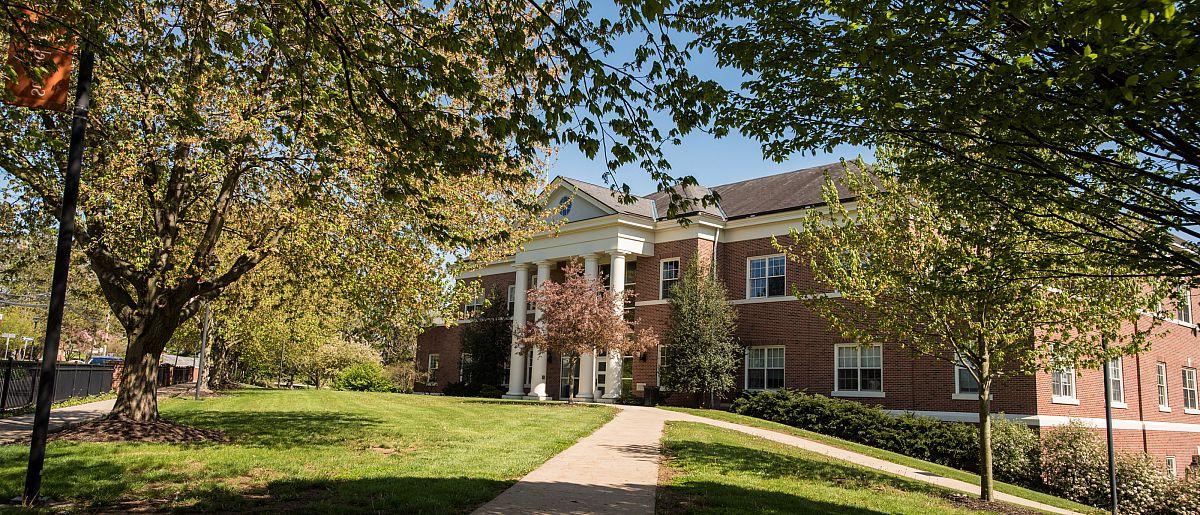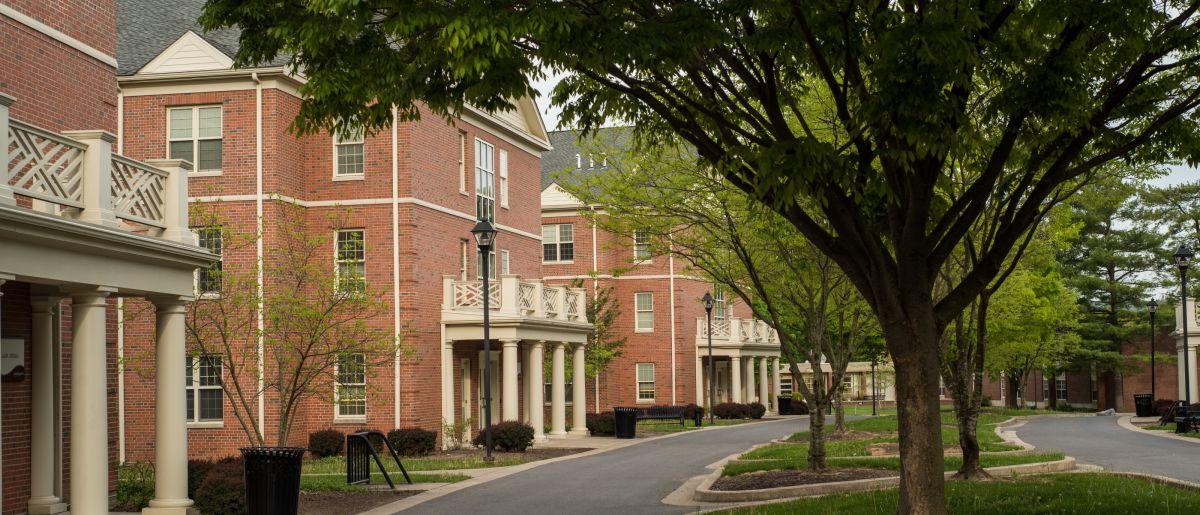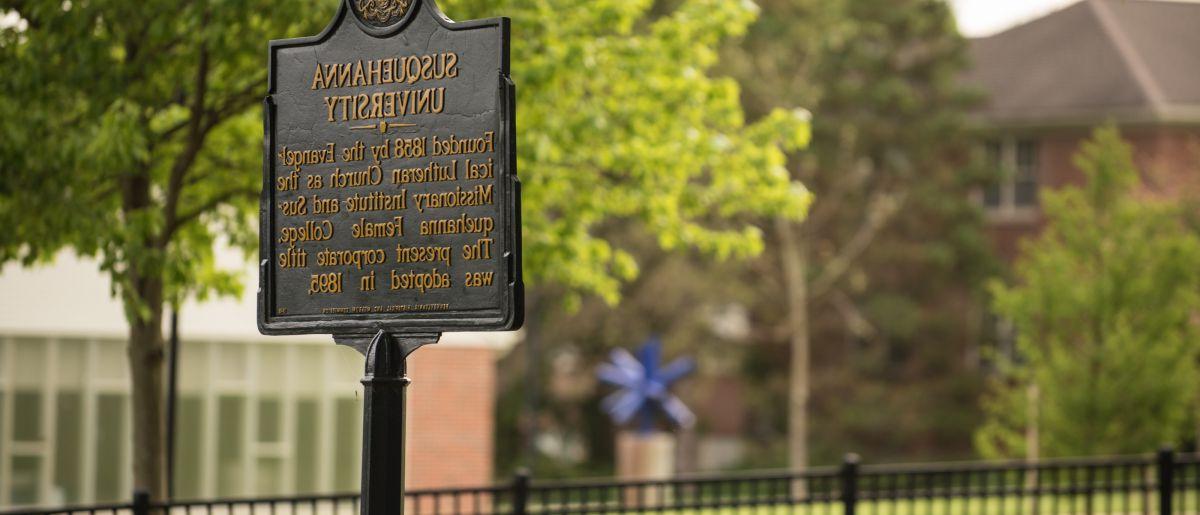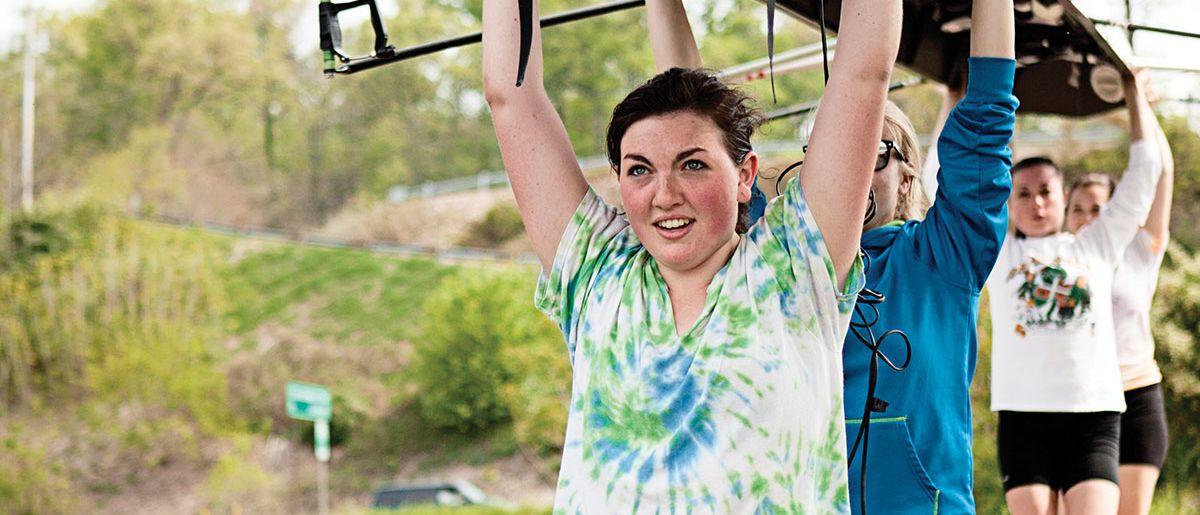Purpose
Susquehanna University (the “University”) recognizes the importance of providing reasonable accommodations for students with disabilities who require the assistance of animals. This policy outlines the specific requirements that govern students’ use of service animals or requests for a reasonable accommodation in the form of an assistance animal. It also clarifies the difference between a Service Animal and an Assistance Animal. The University reserves the right to amend this policy at any time as circumstances require.
Service Animals
Definition and Requirements
-
Service Animals are defined and regulated in accordance with the American with Disabilities Act (“ADA”). That law states that a Service Animal is an animal, usually a dog, that is individually trained to do work or perform specific tasks for the benefit of an individual with a disability, directly related to the individual’s specific physical or mental disability. Examples of tasks performed by Service Animals include assisting an individual who is blind or has impaired vision, pulling a wheelchair, and alerting an individual who is deaf or hearing impaired to the presence of people or sounds.
- With the limited exception of individually trained miniature horses, only dogs are considered Service Animals under the ADA. Pets are not Service Animals and are not allowed in residence halls. As set forth more fully below, a student with a Service Animal may generally bring their Service Animal into all areas on the Campus that are open to the public or to students.
Procedure to have Service Animals on Campus
-
In a situation where it is not readily apparent that a student’s Service Animal is trained to do work or perform specific tasks for a student with a disability, the University may ask the student if the animal is a Service Animal required because of a disability and what type of work the animal is trained to perform. The University will not ask and does not require documentation about the training or certification of the Service Animal nor does it require information about the nature or extent of a Service Animal owner’s disability.
-
It is preferred that students with disabilities who desire to use a Service Animal on campus formally register with the Office of Disability Services and register the use of their Service Animal. Upon receiving a request for the use of a Service Animal, the Office of Disability Services will schedule an appointment with the student to discuss this Policy and provide the student with any assistance that may be helpful.
- If a student has a Service Animal and also intends to live on campus, those individuals who may be impacted the animal’s presence on campus will be notified, including the student’s roommate(s) or suitemate(s) to make them aware of the approval and notify them that the animal will be sharing the residence with them. The notification will be limited to communication about the animal’s presence, and there will be no disclosure of the student’s specific disability.
Use of Service Animals on Campus
-
Service Animals may travel freely with their owner throughout the University, where other members of the University community and public are generally allowed to go.
-
Service Animals, however, may be denied access from any facility on campus if the Service Animal (1) is out of control and the student is not effectively controlling it; (2) is not housebroken; (3) poses a direct threat to the health or safety of others; or (4) is behaving in such a way that would fundamentally alter the nature of a service or program of the University.
-
When outside, Service Animals must be controlled by leash or harness, unless the owner’s disability prevents them from using these items or if these items prevent the Service Animal from performing their tasks.
Assistance Animal/Emotional Support Animal:
Definitions and Requirements
-
Assistance Animals are a category of animals that may work, provide assistance, or perform physical tasks for a student with a disability and/or provide necessary emotional support to a student with a mental or physical disability that alleviates one or more identified symptoms of a student’s disability.
-
Assistance Animals are not Service Animals under the ADA. Assistance animals are typically not trained to perform specific work or tasks. Assistance Animals are not limited to dogs and can be other species of animals.
-
Assistance Animals are only permitted on campus with prior approval from the Office of Disability Services.
Procedure to have an Assistance/Emotional Support Animal on Campus
-
Students with disabilities desiring to use an Assistance/Emotional Support Animal must obtain prior authorization from the Office of Disability Services. Students intending to make sure a request are encouraged to do so as soon as possible in advance of the academic year, and at least 30 days prior to the student’s arrival on campus.
-
Upon receiving a request for the use of an Assistance/Emotional Support Animal, the Office of Disability Services will schedule an appointment with the student to discuss the accommodation request.
-
If the student’s disability and/or disability-related need is not readily apparent or known, the University may ask for additional documentation of the student’s disability and disability-related need for the Assistance Animal. In such a situation, the Office of Disability Services may require the student seeking an Assistance Animal to fill out a form to be completed by the student’s treating physician, psychiatrist, mental health professional, or other reliable third party confirming that the Assistance Animal is necessary to alleviate one or more symptoms of the student’s existing disability. Students may need to re-submit information each academic year.
-
Although students will be required to demonstrate their need for an Assistance Animal, the University will not ask students to provide access to medical records or for healthcare providers to give detailed and/or extensive information or documentation of the requesting student’s physical or mental disability.
-
In evaluating a student’s request for an Assistance Animal, the University will consider whether (1) the student has a disability and (2) whether the Assistance Animal is necessary to afford the student an equal opportunity to enjoy the University’s services. The request may be denied if the request would impose an undue burden on the University, fundamentally alter the University’s services, or pose a direct threat to the health and safety of others.
-
If a student has been approved for an Assistance/Emotional Support Animal and intends to live on campus, those individuals who may be impacted the animal’s presence on campus will be notified, including the student’s roommate(s) or suitemate(s) to make them aware of the approval and notify them that the animal will be sharing the residence with them. The notification will be limited to communication about the animal’s presence, and there will be no disclosure of the student’s specific disability.
- Students whose request for an Assistance/Emotional Support Animal through this process is not granted will have the opportunity to appeal such decisions by contacting the Vice President for Student Life & Dean of Students
Use of Assistance Animals on Campus
-
Assistance/Emotional Support Animals are only permitted in a student’s Residence Hall. Assistance Animals are not permitted in other buildings of the University (e.g., library, classrooms)
-
In the Residence Hall, they must be contained within the privately assigned residential area (room, suite, apartment), with the exception of going outside the building for instances of veterinary appointments or elimination walks as needed
-
When outside, Assistance/Emotional Support Animals must be controlled by leash or harness, or placed in an animal carrier.
- Assistance Animals may only stay on campus as long as the owner has a disability-related need for the Assistance Animal. Owners must notify the Office of Disability Services if the Assistance Animal is no longer necessary or no longer on campus.
Responsibilities of Student Owners of Service Animals and Assistance/Emotional Support Animals
-
Students with Service Animals or Assistance Animals (“Owners”) are solely responsible for the animal’s care and supervision. The animal must be under the control of the Owner at all times and must remain in close proximity to the Owner whenever outside the Owner’s room.
-
The Owner is financially and legally responsible for the actions of an approved Service Animal or Assistance Animal, such as bodily injury or property damage, including but not limited to, any replacement of furniture, carpet, or wall layering, etc. The University shall have the right to bill the student for necessary repair and/or replacement costs.
-
All animals living on campus must be licensed and vaccinated. Owners are required to abide by all current borough, county and state ordinances, laws and regulations for animals. Owners are responsible for ensuring that the animal is well-cared for and fed. The University is not responsible for providing care or food to any animal including, but not limited to, removing the animal during an emergency evacuation.
-
The owner of the Assistance/Emotional Support Animal is responsible for ensuring that the approved animal does not impede with the routine activities and daily operations of the University or cause complications for students attending or working there. Sensitivity to individuals with allergies and to those who fear animals is vital to ensure the peace of the campus community
-
The residence of an Owner may be inspected for fleas, ticks, or other pests once per semester or as needed. If fleas, ticks, or other pests are detected through inspection, the affected areas with be treated using a Susquehanna University approved pest control service. The student will be billed for the expense of any pest treatment above and beyond the normal required pest management in University housing, if it is determined that the reason for the extra expense is the result of the animal.
-
The residence of the Owner may undergo additional Health and Safety Checks, if determined necessary by Residential Life
-
Animals may not be bathed in shower rooms, bathtubs, or sinks in the residence halls, and animal food must be kept in a covered storage container
-
All animals living on campus must be housebroken. The Owner is responsible for ensuring the cleanup of the animal’s waste and must toilet the animal in areas designated by the university, consistent with the reasonable capacity of the Owner. Animal waste must be disposed of in a plastic trash bag, that is tied off, and placed in a waste container outside of the residence hall. Waste from animals using in-door toileting must be disposed of outside the building on a regular basis, as to eliminate any odor. Litter boxes should be placed on mats so that feces and urine are not tracked onto carpeted surfaces.
-
Animals must not be tethered to a stationary fixture or left unattended outside of a residential room on campus
-
Except in the case of an extreme emergency, Animals may not be left overnight in University Housing to be cared for by anyone other than the Owner. Animals must be taken with the owner if they leave campus for a prolonged time or the owner’s emergency contact must come pick up the Assistance/Emotional Support Animal
-
Owners must abide by all other residential policies.
- All Animals must be treated humanely.
-
The University may require an Owner to remove his or her Service Animal or Assistance Animal from the University if the animal poses a direct threat to the health and safety of others, creates an undue burden on the University, when the animal’s presence fundamentally alters the University’s housing or a University program or service, or when the student Owner does not comply with the responsibilities outlined above. Each determination for removal will be made on an individualized basis. If the animal is removed for any reason, the owner is expected to satisfy their housing obligations.
- Violation of these responsibilities may also be reviewed through the University’s Student Conduct system, subject to all the rights set forth in University policies. Any such conduct charges will be made on an individualized basis.














